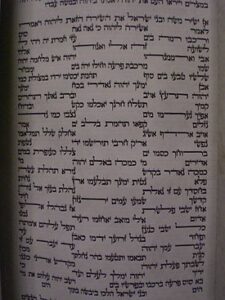- 617-277-6610
- Email Us
February 3, 2023
This Shabbat is known as Shabbat Shira (the Shabbat of Song) because in this week’s Torah reading, we have the Song at the Sea! From this section we take the words of Mi Chamocha – the blessing for redemption traditionally recited as part of the morning and evening Shema each day, and which our community sings together every Shabbat. We read that the terrified people, being pursued by the Egyptians and facing the depths of the sea in front of them, suddenly find themselves able to walk across the sea, with the walls of water undulating on either side. Their response? “Then Moses and the Israelites sang this song to Adonai (God). They said:
I will sing to Adonai for He has triumphed gloriously; Horse and driver He has hurled into the sea. Adonai is my strength and might; He is become my deliverance. This is my God and I will enshrine Him; The God of my father’s [house], and I will exalt Him.” (Exodus 15:1-2)
This, the Israelites immediate outburst of awe and gratitude, stands apart from the prose of the Exodus narrative both in content and in form. “Shira” means both song and poem, and biblical poetry tends to be written in the Torah scroll itself in a way that stands out. Here is an image of the Song at the Sea as written in the Torah scroll:

Why a song/poem at this particularly momentous occasion for our people? Why does Torah not simply describe their emotions as grateful or awestruck for having been freed from slavery at long last?
Poetry and music have been human responses to deep emotion throughout the history of human civilization, and music likely even dates back to the prehistoric era. When we attempt to give voice to the most profound human experiences, as individuals or as communities, poetry and music allow us to express what is ultimately truly inexpressible. One can imagine that the Israelites, immediately having crossed the sea, were filled with a jumble of emotions – not simply gratitude and awe, but also trepidation and fear as they faced the unfamiliar, vast wilderness. We see the complexity of emotions immediately after the Song at the Sea, which ends with Moses’ sister Miriam picking up her tambourine and leading the women in song and dance. Despite their incredible redemption, the Israelites, now in search of food and water, now wonder if it wouldn’t have been better simply to die in Egypt. Immediately they “Grumbled against Moses and Aaron. The Israelites said to them, “If only we had died by the hand of Adonai in the land of Egypt…when we ate our fill of bread! For you have brought us out into this wilderness to starve this whole congregation to death.” (Exodus 16:2-3)
Song, poetry, and ritual can all be “containers” for the immensity of human emotion when faced with joy and anxiety and grief, sometimes all in the same moment. Our tradition, in its radical honesty about the human spirit, and its belief in the way we can hold each other through all of it – wilderness, song and dance, sorrow and fear – teaches us that this journey of life is not simple. Even the most dramatic moments of deliverance will also bring with them anxiety about the path ahead; but we can come together to raise our voices in song, in poetic expression of the entire scope of what we human beings are so blessed to be able to feel, and in that, we will find our way forward.
Rabbi Audrey Marcus Berkman